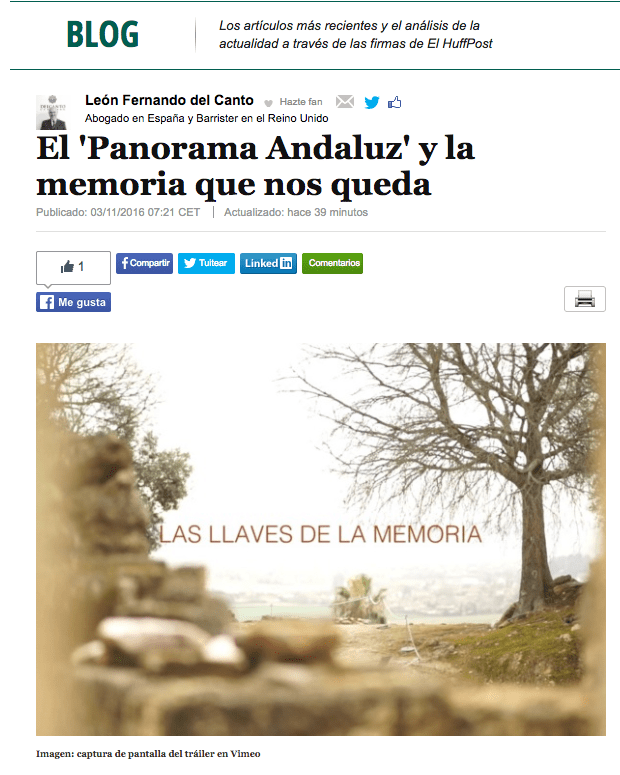The historian that mourned the Caliphate
To celebrate the occasion of our involvement in the XIII Seville’s European Film Festival of 2016, with the documentary film “The Keys of Memory”, about the real identity of the Andalusian people and history. Taking a tour around the most important figures of Andalusian society.
The first of them, in light of this festival, is Ibn Hayyan, a Hispanic-Muslim historian (987-1075) born in Cordoba. He was the son of an Almanzor’s government’s high-official, during the Caliphate of Cordoba.
He witnessed the Cordobesian’s States progressive fall, with the civil war tearing it apart in numerous pieces each time, starting in 1009. As a last caliphs’ official (the amariríes), like Hisham II, was appreciated for being a strong supporter of the Ummayad dynasty.
He is well-known by two grand books of the Andalusian historiography: the first of them is the book of Al-Muqtabi, in which he collects the whole Al-Andalus History before 10th century in 10 volumes which only two of them have been preserved (the 2nd and the 5th) and a piece of another one (the 7th).
The second one is his other significant work, the book of Al-Matin, an essay where he describes and values the historical facts that he saw during his life. This book is lost but some parts have been kept in other later Andalusian writers’ works such as Ibn Bassam or Ibn Al-Abbar.
With no doubt, Ibn Hayyan is one of the most important Al-Andalus figures and he notoriously influenced the Muslim world’s historians and philosophers all round.




